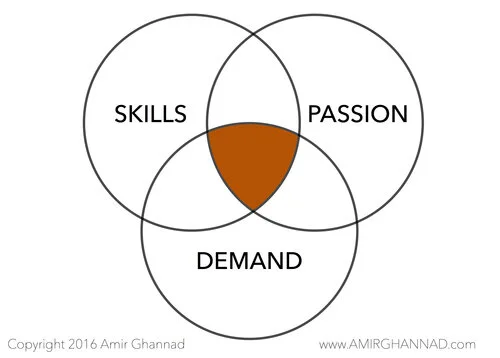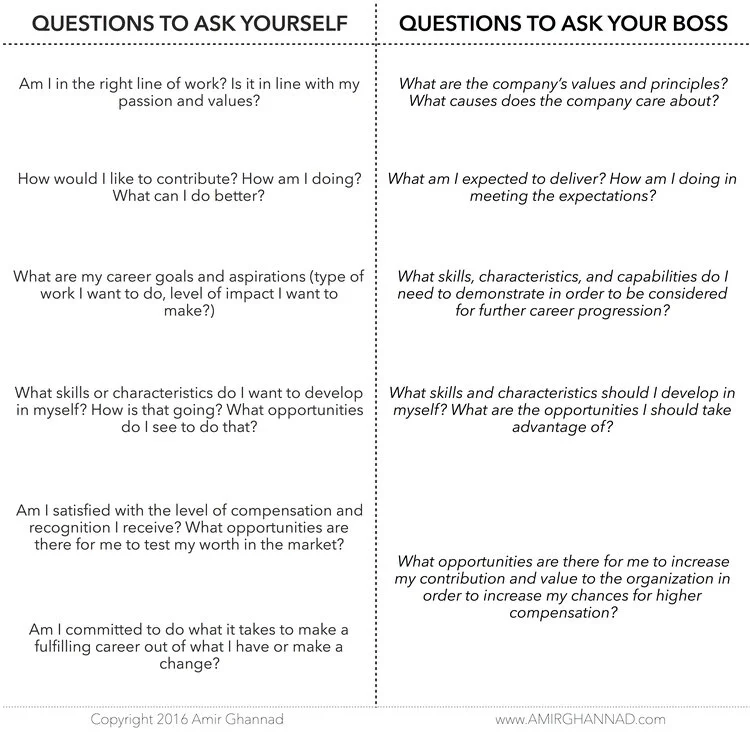10 Steps to Career Fulfillment and World Peace
Unless you are a head of state or hold a critical post in government, you may be thinking, “What does my career have to do with world peace?” My answer is “everything!” It’s plain and simple, while some of us are busy trying to make deals and find temporary solutions that will stop people from killing each other over a piece of land or their ideological beliefs, most of us have lost sight of the simple truth that the key to a peaceful world is peaceful people.
I don’t claim to be an authority on achieving inner peace, but there is one facet of peace and prosperity that I know a thing or two about, and that is how to create workplace environments where people are inspired and fulfilled, and don’t go home and “kick the dog.” There are simply too many people, over 50% according to some statistics, who are simply not satisfied at work, where they spend the majority of their waking hours. I have witnessed the ripple effects of a healthy workplace culture, where people are satisfied in their jobs/careers, create overwhelming peace and prosperity in the lives of people. I have made a career out of creating such workplace cultures where people prosper and businesses flourish, and coaching leaders on how to do the same. But, today’s post focuses on what each of us, not our bosses or employers, can do to either achieve career satisfaction right where we are, or liberate ourselves to pursue and achieve it elsewhere.
Let’s first start by examining the nature of an unfulfilling job/career and how it could come about. There are a variety of contributing factors that could cause us to be dissatisfied with our careers. A bad boss is on the top of the list because good leaders can usually help us overcome and compensate for things we don’t like about our jobs. But then, there are a host of other causes such as not having passion for the line of work we are in, or not being skilled or competent enough in our work to produce extraordinary results and be recognized for them, not feeling like we are being compensated or treated fairly, or simply being bored because we don’t see an exciting future ahead.
No matter what triggers people to be unhappy in their careers, there is one thing that all the people who are stuck in unfulfilling careers have in common: They have all made a choice to stay where they are and remain dissatisfied rather than take action. If the word “choice” struck a nerve just now, please don’t change the channel. I promise this post will make a difference for you if you stick with it. None of us need another lecture on how we have a choice and so on. We choose to go to work at a job we can’t stand every day because it is obvious that choosing not to do so has grave consequences. I have been in this position many times in my life when I was stuck because I thought, “I can’t find another job” or, “I don’t want to give up the long term incentives that will vest in a few years,” or, “I don’t think I can make money doing what I really love to do,” or, “I don’t want to throw away years of experience in the field I have been in and start at the bottom in a field I am really passionate about,” or, “I could start a business, but I don’t want to take the risks of entrepreneurship,” — there are many. So whatever your reason is, I understand that it is real for you. I also want you to consider that many of these thoughts are rooted in fears, limiting beliefs, and assumptions that are simply not true, even though they appear to be. Let me unpack this a bit more and offer a number of practical steps you ought to consider as you go on your journey to fulfillment in your career.
Take responsibility for your career satisfaction – You and only you are responsible and accountable to seek and achieve career satisfaction. Others will play crucial roles in making this happen, but you must give up blaming others if it doesn’t.
Decide that you are simply not going to settle for being stuck in an unfulfilling career and be intentional in finding satisfaction either where you are or pursue and achieve it elsewhere. You may not know how you will do it, it may not happen tomorrow, and you may have a number of concerns. Regardless of all of that, this decision alone will create a possibility, the pursuit of which will instantly transform your experience of your present situation because you know that no matter how bad it is right now, it WILL BE better in the future.
Clearly define success – Go beyond the title you want to have and think about all aspects of your career including the type of work, location, level of contribution, compensation, etc. Then, divide your preferences into must-have’s, which you are not willing to compromise, and nice-to-have’s. Having this kind of clarity will guide your decision making process.
Evaluate your current career for three key factors, namely passion, skill, and demand for your product or service. As depicted below, the most fulfilling careers are the ones that are in line with your passion and skills, producing a marketable product or service. If any of them is missing, you could either choose to take the indicated action or move on and pursue fulfillment somewhere else, but if you choose to hang in there, heed the words of Stephen Stills, “… if you can’t be with the one you love, … love the one you’re with…!
5. Always know whether you are:
a. Doing work that contributes to a cause that matters to you
b. Making a contribution and being recognized for it
c. Working toward a brighter future
d. Learning and growing
e. Being compensated well
Ask yourself these self-reflection questions and periodically get your boss’s perspective on the following questions, listed below:
6. Make a plan and work your plan – Be prepared to be spontaneous and take advantage of unforeseen opportunities that come your way, but always have a base plan with clear milestones.
7. Build and cultivate a network – Don’t wait until you need something. Look for opportunities to establish mutually beneficial relationships with a genuine interest to bring value to others.
8. Ask for feedback, listen and apply – Seek to understand other people’s points of view on your performance and skills. If your boss is not the greatest communicator in the world, initiate the conversations and ask specific questions. Instead of saying, “Let me know if you have any feedback for me,” say, “What is one thing I did very well in running the meeting this morning?” or, “What is one thing I could have done better in running the meeting?”
9. Do the work you love to do in your spare time, for free if you have to – This is a good strategy for so many reasons: You will get better at it, you will make a contribution, and you will be around kindred spirits who can be a link to opportunities.
10. Constantly work on getting better – Don’t expect extraordinary career progression for ordinary contribution. Always look for and seize the opportunities to increase your skills and contribution.
Even if you don’t find all of these suggestions relevant, I’d recommend you identify a few that do apply to you and make a commitment to follow through on them. You are taking a first step in creating world peace, starting with yourself. As always, I would love to hear about your victories and challenges and any advice you have on this topic. May you boldly declare, courageously pursue, and abundantly achieve the extraordinary.
Have a great week! As always, I would love to hear about your victories and/or challenges. Please leave your comments below or send me an email at amir@theghannadgroup.com.
Copyright © 2016 The Ghannad Group, LLC, All Rights Reserved.



